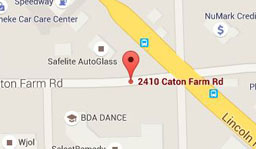Bad Breath: Causes, Symptoms, and Treatment

About 25% of the population struggles with bad breath. The foul smell can happen due to several factors, but poor dental health is a primary cause. Fortunately, preventive and treatment options for bad breath in adults and children are available.
Find out about the causes, symptoms, and treatment for bad breath.
Causes of Bad Breath
Your mouth will break down any food that you eat. Foods with strong smells can affect your breath. The food includes onions, garlic, cheese, and certain spices.
Moreover, some of these foods will move into the bloodstream and the lungs, interfering with exhalation. You can floss or brush your teeth, but the odor may remain.
Failure to eat frequently can also cause unpleasant breath. The lack of food in the body leads to the breakdown of fats. This process generates chemicals that can affect your breath.
Poor oral hygiene is another factor that can cause bad breath. Failure to floss and brush your teeth daily can encourage bacteria on your teeth and gums. The bacteria can cause bad breath or cause dental diseases that reduce bad breath.
Consumption of tobacco products is another cause of mouth odor. Other common causes of bad breath include a dry mouth, certain medications, diseases, and crash diets. In rare cases, bowel obstruction and aspiration pneumonia have led to bad breath.
Symptoms of Bad Breath
The particular type of bad breath will vary due to the cause. Since you may not know the type of breath yourself, request another person to do the assessment.
You can also lick your wrist and then smell it to assess your breath smell. If the wrist smells bad, your breath may also have an unpleasant smell.
Prevention and Treatment for Bad Breath
Bad breath is usually a mild condition that may go away after some time. If the problem persists, you can seek treatment. Discover prevention and treatment strategies for bad breath.
Practice Good Oral Hygiene
Regular flossing, brushing, and rinsing are excellent ways to combat bad breath. Enhanced oral hygiene will prevent bacteria accumulation on your teeth, gums, and tongue. Brushing also helps to remove rotten food particles that may lead to unpleasant mouth smells.
Drink Lots of Water
Drink a lot of water several times a day to prevent the chances of a dry mouth. Water also helps to dislodge food particles and debris from the mouth. Therefore, you can have better breath and prevent other oral problems.
Schedule Regular Checkups
Colds and allergies may cause postnasal drip that generates excess mucus. The mucus will become a breeding ground for bacteria and lead to unpleasant smells in the mouth and nose.
Bad breath may also come about as a result of several diseases. Preempt these conditions by scheduling regular checkups. These wellness checks will identify emerging health problems and recommend timely treatment.
Avoid Smoking
Tobacco products can stain your teeth and cause bad breath. Complete abstinence from tobacco is a great way to improve the smell of your breath. You can use over-the-counter nicotine patches to help you stay away from tobacco products. Other effective options are quit-smoking programs and prescription medications.
Chew Gum Instead of After-Dinner Mints
Bacteria can use sugar in the mouth to produce acids. Acids cause dental damage and lead to unpleasant odors in the mouth. Since mint has lots of sugar, chew sugarless gum after dinner. Chewing gum increases saliva in the mouth and prevents bad breath.
Good dental health prevents bad breath and enhances overall well-being. Crest Hill Family Dental can be a dependable partner on your journey to improving dental health. We offer family dental health services. Contact us to know how we can help you.

